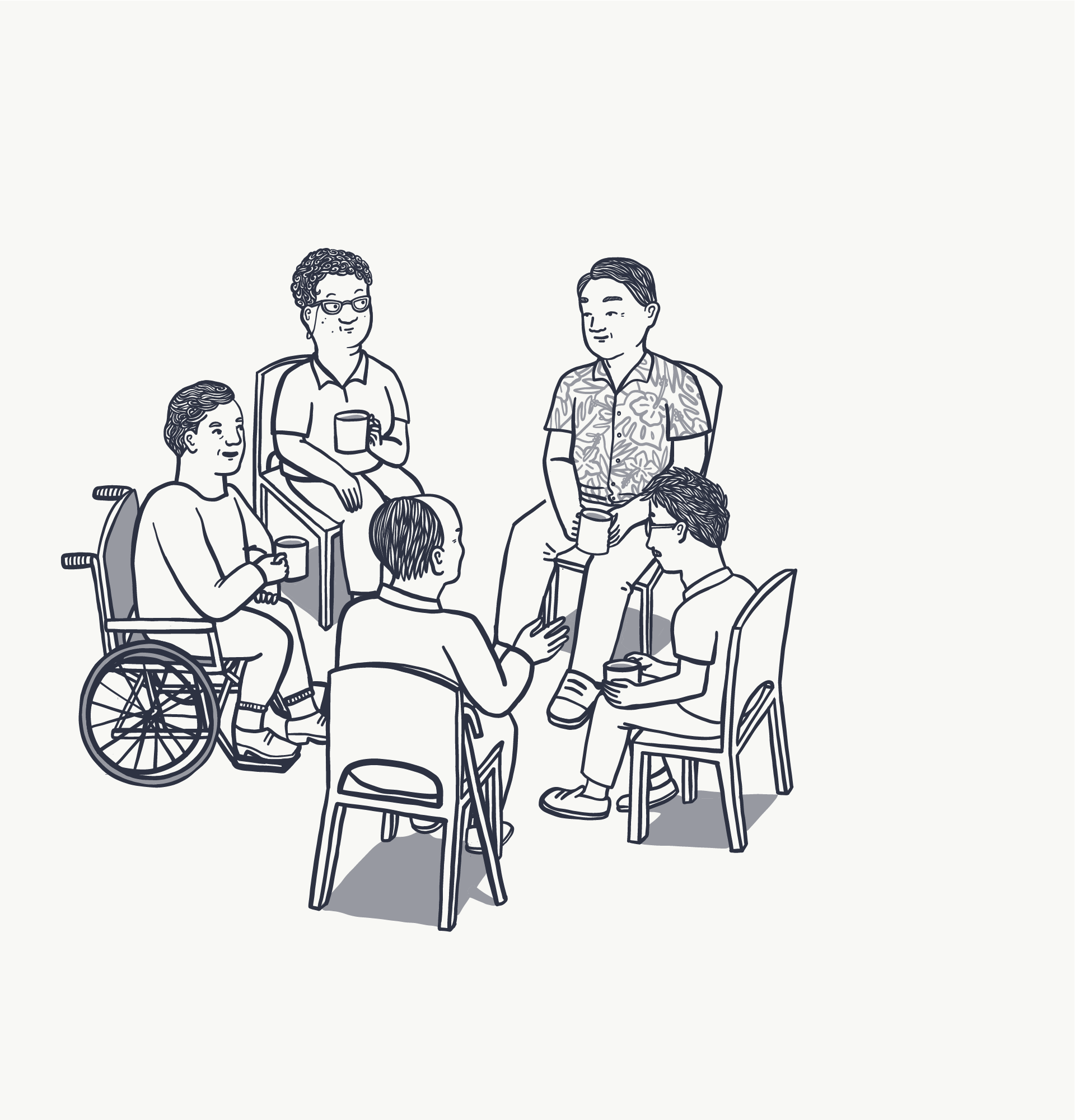Haere Mai, Welcome
Our research showed that stories of life post-injury had many things in common.
The researchers interviewed 89 adults in New Zealand: 52 who had a traumatic brain injury (TBI) themselves and 37 significant others (e.g. close relative, close friend). The interviews were at 6 months, 1 year and 2 years after the injury and asked about how people recovered and adapted to living life after the injury. We found there were common themes across different people, different circumstances and different severities.
The research team have set up this site to allow you to explore a segment of the findings from this research in your own way and in your own time.
The website is designed for people who do not have lived experience of a TBI. The goal is to help you understand what people go through in more depth so you can support someone with a TBI and their family. People with lived experience of a TBI might also find it helpful and interesting.
Ways to explore the site:
If you want to explore the findings of the research directly, there are three ways to do this:
1.
The interactive diagram shows links between the different categories in the findings so you can see how they relate. You can click on each of these and get more detailed information.
2.
Explore the research findings through narratives from the perspective of someone with lived experience. The people and their stories are fictional, but each is informed by interviews from the research study. The stories have links to the research findings so you can read more about the issues that interest you.
3.
Go straight to the list of themes and descriptions to read through and gain an in-depth understanding of our research.
Explore relationships between our research findings
Try the interactive diagram to see how concepts in the research findings relate to one another

Common experience: what our research found
Important aspects of recovering and adapting after Traumatic Brain Injury
Recognising, acknowledging, believing, understanding
Recognising the injury and its effects and acknowledging what has happened were recognised as vital for many of the people we talked to. This recognition and acknowledgement were important both from the person who had the injury and from the people who were important in their lives and in their recovery (for example, medical staff, but also family and friends). Recognition and acknowledgement were crucial to get the support required for recovery and adaptation.
Key people also need to acknowledge and believe the effects of the injury the person with the injury says they are experiencing in order for the person to get appropriate services and support. Finally, having significant people who either understand (e.g. from their own life experiences) or seek to understand what the person is going through can make an enormous difference in helping the person with the injury to feel supported through their recovery and adaptation.
How life experiences, life roles, spirituality, and sense of self contribute to how you manage
Life roles, sense of self, and spirituality contributed to how the person with TBI and their loved ones were able to cope with and adapt to the effects of the injury. For example, having a sense of one’s self as adaptable, spiritual or having a particular type of life experience helped people to navigate their recovery. These also contributed to how people made sense of both the incident that led to the injury and the effects experienced over time, including helping them see the 'good' in their experiences as well as the 'bad'.
The ability of other people to see this (individual or connected) 'self' rather than just the injury and the effects of the injury was often important to help the person to find ways of managing the effects of the injury and navigating changes in a way that fit with their sense of self. At some times for some people, dealing with injury-related changes and the impact on these on their life and sense of self could be overwhelming, leading to a sense of wanting to 'get away' from the whole situation. Family and other important people could be influential in the person's ability to navigate through recovery and adaptation.
Allowing me to change
After TBI, changes in both day-to-day routines and how things are done are needed in order to make space for things like rehabilitation, changes in abilities, and rest. Acceptance and allowances for these changes can influence how easily the person is able to navigate their recovery. Recognition by multiple people in the person's life that the changes are needed can allow for acceptance and allowances. Indeed, other people (e.g. family, work colleagues) often need to change their own tasks and/or routines to make this possible. Finding out what works may involve experimentation, and changes need to take into account what is most meaningful and important for all the people involved.
Someone needs to drive the process
It is important when navigating recovery from TBI that there is someone who understands what is happening now and either knows or is actively finding out what needs to happen next. This is needed because recovery is complex and often there is a need to coordinate supports and entitlements, as well as plan around difficulties. Because of the symptoms of TBI (e.g. memory difficulties, fatigue) that cannot necessarily be the person with the injury - often this is not possible. However, someone needs to be 'driving the process' at any particular time.








